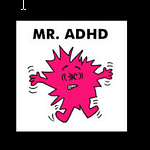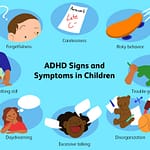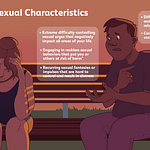Getting a diagnosis for ADHD is the first step in treatment.
Once diagnosed, patients can learn to manage their behaviors and interact with others more effectively. Treatment usually includes medication and psychotherapy.
The two types of therapy work together to improve organizational skills, time management, and behavioural management.
Adults with untreated ADHD have higher rates of substance abuse, criminal activity, and relationship problems. It also leads to poor work performance, increased accident rates, and poor social relationships. Those with ADHD are also more likely to suffer from depression and anxiety. In addition to these issues, untreated ADHD in adults can lead to self-harm, suicide attempts, and physical harm.
The lack of support for adults with ADHD can be expensive to the public. This is especially true in the United States, where the number of adults with untreated ADHD is significantly higher than the general population. The lack of treatment can cause many problems, including substance abuse, legal problems, divorce, unemployment, and poor self-esteem.
In addition to the negative consequences of untreated ADHD, adults who don’t get diagnosed and treated have a long road to recovery. Some adults with ADHD may not even be aware that they have the disorder. They may only have symptoms from time to time. In addition, some people with ADHD may have other conditions that need to be ruled out.
Treatment of ADHD usually involves a combination of medications and counseling. Medication can include stimulants, such as Ritalin, Vyvanse, and Adderall, and non-stimulants, such as Strattera. These drugs are considered schedule II medications. The medication should be included in a comprehensive treatment plan, and it should be taken along with psychological advice, behavioural advice, and educational advice. It is important to discuss the side effects of medication with a health care professional.
Psychotherapy can be beneficial in treating ADHD and depression. It can help patients deal with their feelings and emotions, and can assist them in controlling impulsive behaviors. It can also help patients understand and manage the impact of their ADHD on their lives. It can help patients to feel more confident and improve their self-esteem.
It can also be helpful to have therapy with a qualified mental health professional. These professionals can determine if the person is experiencing symptoms of ADHD, and can assess the severity of the symptoms over time. They can also work with patients’ families to identify appropriate treatments. A trained professional can provide the most accurate diagnosis, and can determine if the condition is the cause of the behaviors.
Medications are also available to treat ADHD, but are only recommended for more severe cases. Those who are unable to tolerate stimulants can be prescribed non-stimulants. The decision to prescribe medication is ultimately a personal one. It should be included in a comprehensive treatment plan, which should also include stress management techniques, cognitive behavioral therapy, and psychotherapy.
The NICE guidelines for ADHD were issued in 2008. These guidelines recommend the most cost-effective treatment options. During a consensus meeting, the barriers to treatment were highlighted. The group called for more funding, better training for professionals, and streamlined communication between health services. It also recommended specific policies to improve outcomes for those with ADHD.







